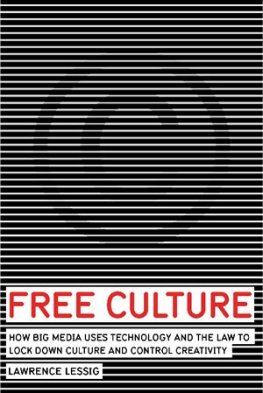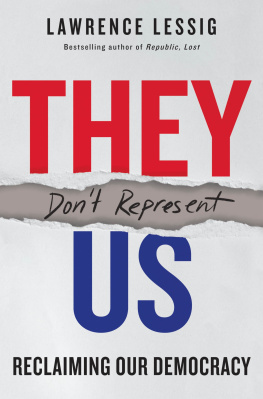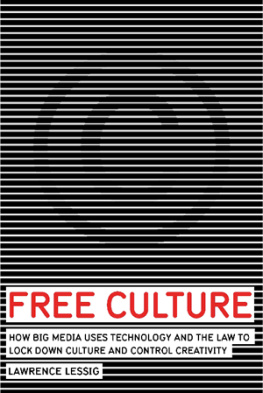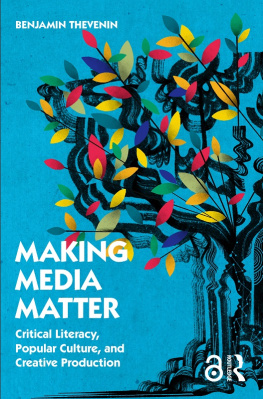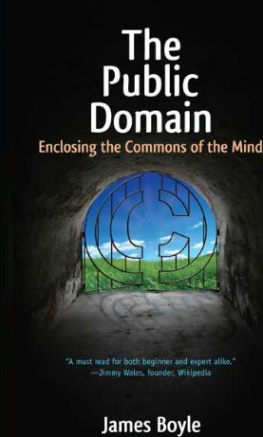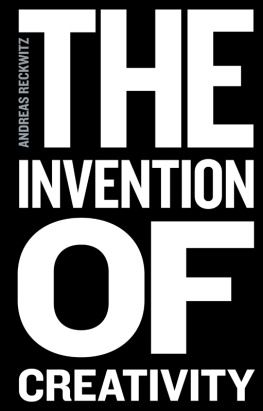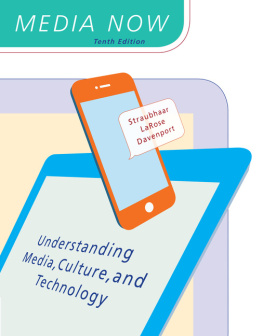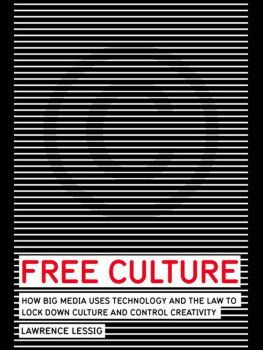Lawrence Lessig - Free culture : how big media uses technology and the law to lock down culture and control creativity
Here you can read online Lawrence Lessig - Free culture : how big media uses technology and the law to lock down culture and control creativity full text of the book (entire story) in english for free. Download pdf and epub, get meaning, cover and reviews about this ebook. City: New York, United States, year: 2004, publisher: Penguin Press, genre: Politics. Description of the work, (preface) as well as reviews are available. Best literature library LitArk.com created for fans of good reading and offers a wide selection of genres:
Romance novel
Science fiction
Adventure
Detective
Science
History
Home and family
Prose
Art
Politics
Computer
Non-fiction
Religion
Business
Children
Humor
Choose a favorite category and find really read worthwhile books. Enjoy immersion in the world of imagination, feel the emotions of the characters or learn something new for yourself, make an fascinating discovery.
- Book:Free culture : how big media uses technology and the law to lock down culture and control creativity
- Author:
- Publisher:Penguin Press
- Genre:
- Year:2004
- City:New York, United States
- Rating:3 / 5
- Favourites:Add to favourites
- Your mark:
- 60
- 1
- 2
- 3
- 4
- 5
Free culture : how big media uses technology and the law to lock down culture and control creativity: summary, description and annotation
We offer to read an annotation, description, summary or preface (depends on what the author of the book "Free culture : how big media uses technology and the law to lock down culture and control creativity" wrote himself). If you haven't found the necessary information about the book — write in the comments, we will try to find it.
Free culture : how big media uses technology and the law to lock down culture and control creativity — read online for free the complete book (whole text) full work
Below is the text of the book, divided by pages. System saving the place of the last page read, allows you to conveniently read the book "Free culture : how big media uses technology and the law to lock down culture and control creativity" online for free, without having to search again every time where you left off. Put a bookmark, and you can go to the page where you finished reading at any time.
Font size:
Interval:
Bookmark:
Lawrence Lessig

All Your Books Are Belong To Us !
http://c3jemx2ube5v5zpg.onion
How Big Media Uses Technology and the Law to Lock Down Culture and Control Creativity
Copyright 2004 Lawrence Lessig
This License permits non-commercial use of this work, so long as attribution is given.
For more information about the license, visit http://creativecommons.org/licenses/by-nc/1.0/
ISBN : 9781594200069
Professor Lessig analyzes the tension that exists between the concepts of piracy and property in the intellectual property realm in the context of what he calls the present "depressingly compromised process of making law" that has been captured in most nations by multinational corporations that are interested in the accumulation of capital and not the free exchange of ideas.
The book also chronicles his prosecution of the Eldred v. Ashcroft case and his attempt to develop the Eldred Act also known as the Public Domain Enhancement Act or the Copyright Deregulation Act.
Lessig concludes his book by suggesting that as society evolves into an information society there is a choice to be made to decide if that society is to be free or feudal in nature. In his afterword he suggests that free software pioneer Richard Stallman and the Free Software Foundation model of making content available is not against the capitalist approach that has allowed such corporate models as Westlaw and LexisNexis to have subscribers to pay for materials that are essentially in the public domain but with underlying licenses like those created by his organization Creative Commons.
He also argues for the creation of shorter renewable periods of copyright and a limitation on derivative rights, such as limiting a publisher's ability to stop the publication of copies of an author's book on the internet for non-commercial purposes or create a compulsory licensing scheme to ensure that creators obtain direct royalties for their works based upon their usage statistics and some kind of taxation scheme such as suggested by professor William Fisher of Harvard Law School that is similar to a longstanding proposal of Richard Stallman.
David Pogue, "Don't Just Chat, Do Something," New York Times, 30 January 2000.
Richard M. Stallman, Free Software, Free Societies 57 ( Joshua Gay, ed. 2002).
William Safire, "The Great Media Gulp," New York Times, 22 May 2003.
St. George Tucker, Blackstone's Commentaries 3 (South Hackensack, N.J.: Rothman Reprints, 1969), 18.
United States v. Causby, U.S. 328 (1946): 256, 261. The Court did find that there could be a "taking" if the government's use of its land effectively destroyed the value of the Causbys' land. This example was suggested to me by Keith Aoki's wonderful piece, "(Intellectual) Property and Sovereignty: Notes Toward a Cultural Geography of Authorship," Stanford Law Review 48 (1996): 1293, 1333. See also Paul Goldstein, Real Property (Mineola, N.Y.: Foundation Press, 1984), 1112-13.
Lawrence Lessing, Man of High Fidelity: Edwin Howard Armstrong (Philadelphia: J. B. Lipincott Company, 1956), 209.
See "Saints: The Heroes and Geniuses of the Electronic Era," First Electronic Church of America, at www.webstationone.com/fecha, available at link #1.
Lessing, 226.
Lessing, 256.
Amanda Lenhart, "The Ever-Shifting Internet Population: A New Look at Internet Access and the Digital Divide," Pew Internet and American Life Project, 15 April 2003: 6, available at link #2.
This is not the only purpose of copyright, though it is the overwhelmingly primary purpose of the copyright established in the federal constitution. State copyright law historically protected not just the commercial interest in publication, but also a privacy interest. By granting authors the exclusive right to first publication, state copyright law gave authors the power to control the spread of facts about them. See Samuel D. Warren and Louis D. Brandeis, "The Right to Privacy," Harvard Law Review 4 (1890): 193, 198-200.
See Jessica Litman, Digital Copyright (New York: Prometheus Books, 2001), ch. 13.
Amy Harmon, "Black Hawk Download: Moving Beyond Music, Pirates Use New Tools to Turn the Net into an Illicit Video Club," New York Times, 17 January 2002.
Neil W. Netanel, "Copyright and a Democratic Civil Society," Yale Law Journal 106 (1996): 283.
Bach v. Longman, 98 Eng. Rep. 1274 (1777) (Mansfield).
See Rochelle Dreyfuss, "Expressive Genericity: Trademarks as Language in the Pepsi Generation," Notre Dame Law Review 65 (1990): 397.
Lisa Bannon, "The Birds May Sing, but Campers Can't Unless They Pay Up," Wall Street Journal, 21 August 1996, available at link #3; Jonathan Zittrain, "Calling Off the Copyright War: In Battle of Property vs. Free Speech, No One Wins," Boston Globe, 24 November 2002.
In The Rise of the Creative Class (New York: Basic Books, 2002), Richard Florida documents a shift in the nature of labor toward a labor of creativity. His work, however, doesn't directly address the legal conditions under which that creativity is enabled or stifled. I certainly agree with him about the importance and significance of this change, but I also believe the conditions under which it will be enabled are much more tenuous.
Leonard Maltin, Of Mice and Magic: A History of American Animated Cartoons (New York: Penguin Books, 1987), 34-35.
I am grateful to David Gerstein and his careful history, described at link #4. According to Dave Smith of the Disney Archives, Disney paid royalties to use the music for five songs in Steamboat Willie: "Steamboat Bill," "The Simpleton" (Delille), "Mischief Makers" (Carbonara), "Joyful Hurry No. 1" (Baron), and "Gawky Rube" (Lakay). A sixth song, "The Turkey in the Straw," was already in the public domain. Letter from David Smith to Harry Surden, 10 July 2003, on file with author.
He was also a fan of the public domain. See Chris Sprigman, "The Mouse that Ate the Public Domain," Findlaw, 5 March 2002, at link #5.
Until 1976, copyright law granted an author the possibility of two terms: an initial term and a renewal term. I have calculated the "average" term by determining the weighted average of total registrations for any particular year, and the proportion renewing. Thus, if 100 copyrights are registered in year 1, and only 15 are renewed, and the renewal term is 28 years, then the average term is 32.2 years. For the renewal data and other relevant data, see the Web site associated with this book, available at link #6.
For an excellent history, see Scott McCloud, Reinventing Comics (New York: Perennial, 2000).
See Salil K. Mehra, "Copyright and Comics in Japan: Does Law Explain Why All the Comics My Kid Watches Are Japanese Imports?" Rutgers Law Review 55 (2002): 155, 182. "[T]here might be a collective economic rationality that would lead manga and anime artists to forgo bringing legal actions for infringement. One hypothesis is that all manga artists may be better off collectively if they set aside their individual self-interest and decide not to press their legal rights. This is essentially a prisoner's dilemma solved."
Font size:
Interval:
Bookmark:
Similar books «Free culture : how big media uses technology and the law to lock down culture and control creativity»
Look at similar books to Free culture : how big media uses technology and the law to lock down culture and control creativity. We have selected literature similar in name and meaning in the hope of providing readers with more options to find new, interesting, not yet read works.
Discussion, reviews of the book Free culture : how big media uses technology and the law to lock down culture and control creativity and just readers' own opinions. Leave your comments, write what you think about the work, its meaning or the main characters. Specify what exactly you liked and what you didn't like, and why you think so.

